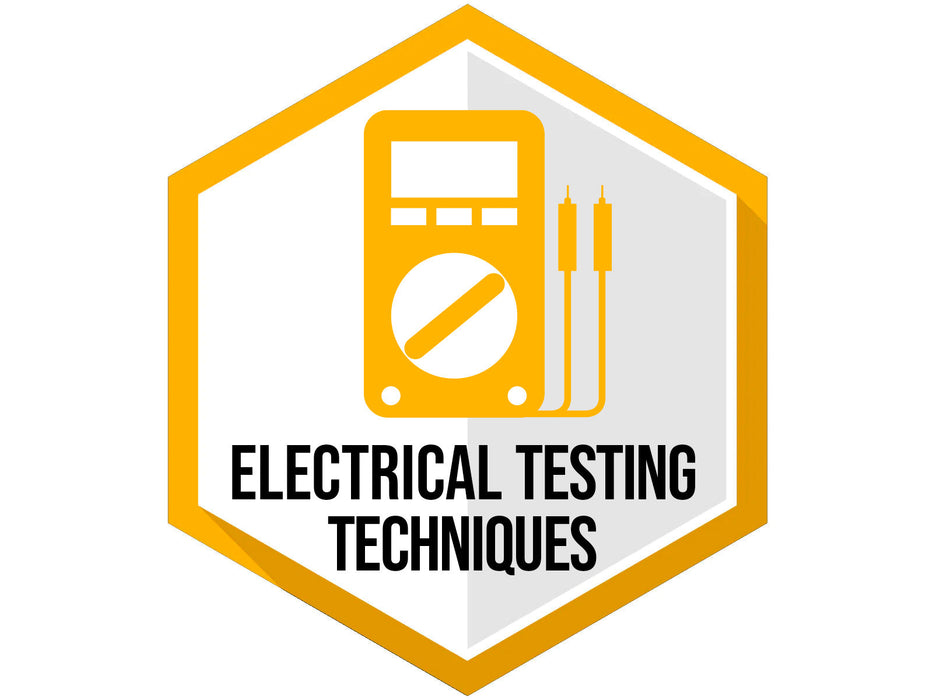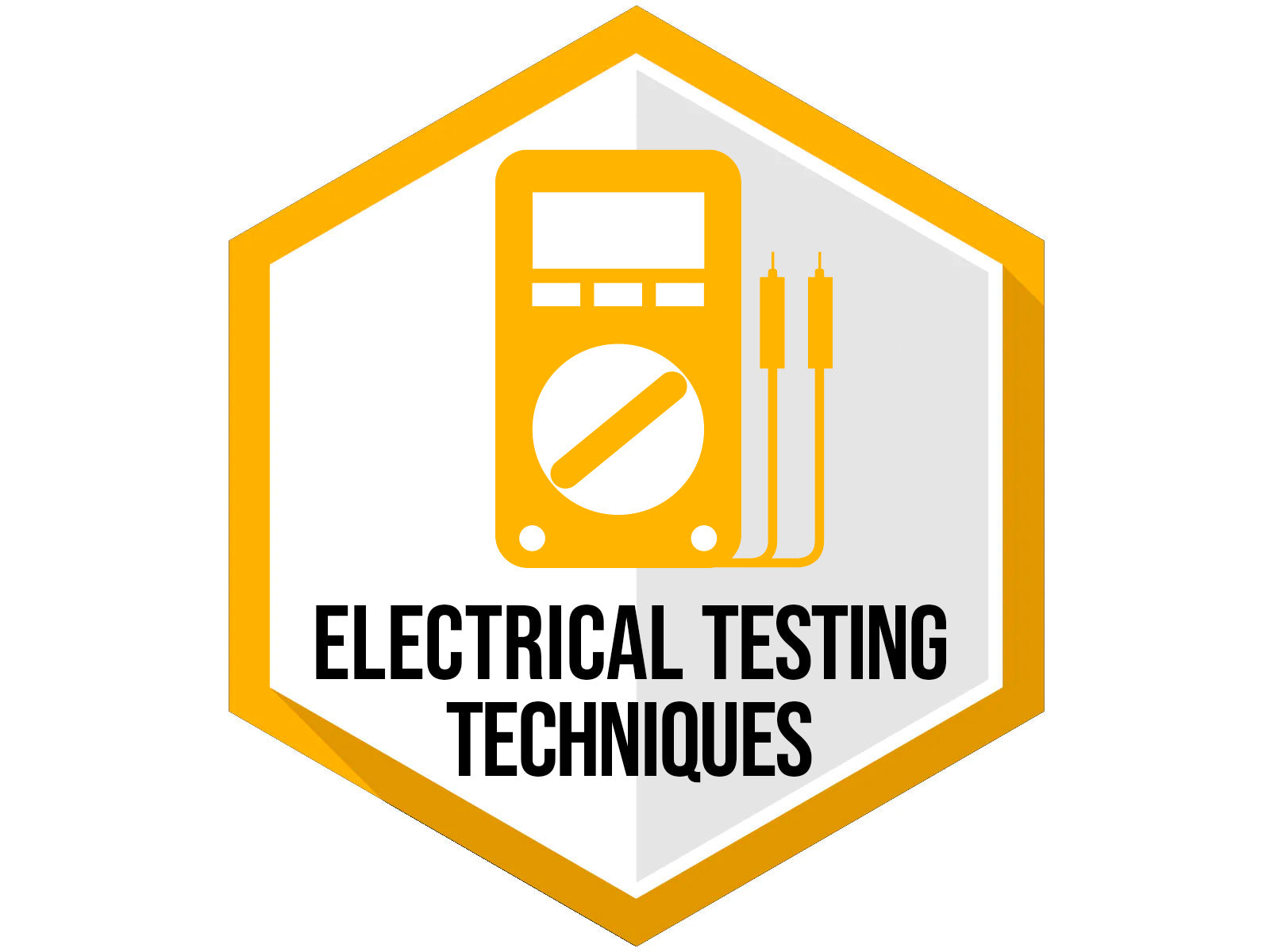Electrical Testing Techniques - Dallas, TX
Electrical Testing Techniques - Dallas, TX
Class Details
- Time: 8am - 5pm CT
- Location: 2001 E. Randol Mill Rd,
Location: Suite 133
Location: Arlington, TX
Refund Policy
Are you looking to enhance your expertise in Electrical Testing Techniques and take your diagnostic skills to the next level? If so, this class is perfect for you! Throughout the course, you'll gain practical knowledge and hands-on experience with various electrical scenarios that regularly occur in a real-world job environment.
The class covers a wide range of essential topics, including understanding and effectively using multimeter functions, performing battery load tests, identifying parasitic draws, and much more. You'll also learn advanced topics like analyzing alternator a/c ripple with a DSO digital oscilloscope and more!
In addition to honing your diagnostic skills, the class will teach you how to interpret and redraw wiring schematics, a valuable skill that will further empower you in your everyday work. By the end of the course, you'll be equipped with the necessary skills and procedures to confidently handle electrical testing challenges.

Electrical Theory
Throughout the course, you'll gain valuable insights and hands-on experience with various scenarios that you encounter in your day-to-day job environment. The class will cover all the necessary steps and procedures to elevate your diagnostic comprehension, enabling you to confidently handle even the most challenging situations. You'll learn how to make the most of the diagnostic tools found in your toolbox, and you'll explore how to use them effectively in advanced scenarios.
See All Topics
Topics Covered:
- Multimeter Functions and how to use them
- Battery Load Testing
- Parasitic Draw Test
- Voltage Drop Test
- Starter System Testing
- Charging System Testing
- Load Pro Voltmeter leads Operation
- Alternator a/c ripple using Power Probe 4, multimeter, DSO digital oscilloscope
- Checking for Electrolysis
- How to interpret and re-draw wiring schematics to your benefits

Electrical Testing Techniques: Why are they essential?
This class is tailored to help you excel in handling various scenarios from diagnosing trouble codes to dealing with intermediate faults and malfunctioning electrical components. With Electrical Testing Techniques, you'll learn the art of reading, applying, and observing how an ECM (Engine Control Module) responds to its registrations. Some tests may involve actuating components using computer software, but the crucial part is understanding whether the electrical messages sent by the ECM to different components are accurate and reliable.

Wiring Diagrams
In this class, technicians will learn to re-draw and simplify wiring diagrams, making them easier to comprehend. This skill will lead to faster and more accurate diagnostic troubleshooting.

Industry Versatility
The best part about learning these electrical diagnostic skills is that they aren’t specific to any industry. With the skills and techniques from this class, you’ll be able to work on everything from heavy-duty vehicles, off-highway equipment, generators, really any piece of equipment with an electrical system.

Hands-on Training
Our training department has developed hands-on training aids to reinforce concepts learned in the course. These aids replicate real-life circuits, providing practical repair experience in HVAC control units, starter circuits, and automated transmission wiring circuits.

Benefits for Diesel Technicians
This class will help elevate your diagnostic comprehension to take your career as a technician to new levels. No matter your field, this course will take you through different scenarios of Electrical Testing Techniques and teach you skills that can be built upon for years to come. Becoming proficient in skills such as resistance and amperage checks will make your job easier and allow you to earn respect and pay that reflects this proficiency.

Benefits for Shop Owners and Managers
The skills your technicians learn in this class will help them diagnose equipment quickly and efficiently resulting in less time wasted on incorrect diagnostics and repairs ultimately leading to less downtime. Because of the heavy electrical nature of today’s repairs, the ROI from teaching your technicians these electrical skills will be evolving and ever-growing.







